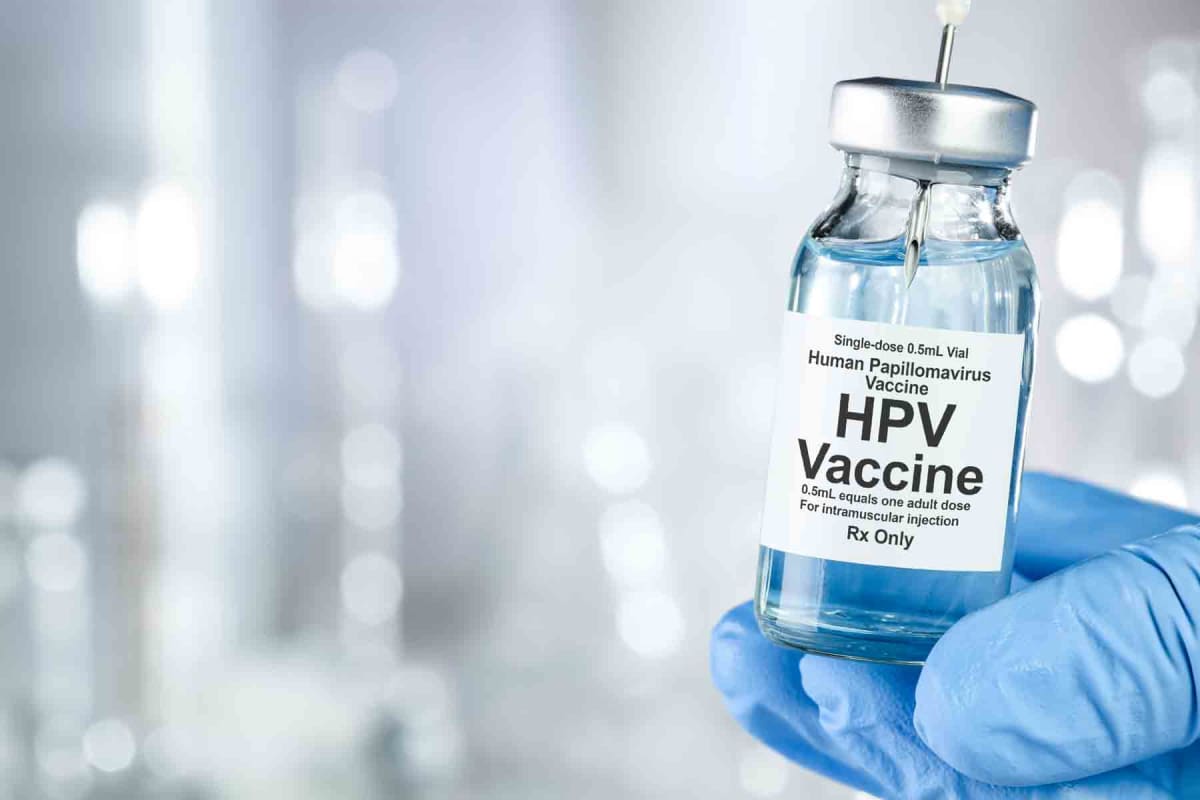
How much does the HPV vaccine cost?
How much does the HPV vaccine cost?
$240 – $350 cost per dose (without insurance)
$480 – $1,050 cost for full series (without insurance)
Average cost of the HPV vaccine
The HPV vaccine costs $240 to $350 per dose without insurance, or $480 to $1,050 for the complete vaccination series of two to three doses. Prices depend on whether you get the vaccine at a pharmacy, your doctor's office, or a community health center.
The HPV vaccine is free with most commercial or private insurance, Medicare Part D, and Medicaid.

| Factor | Average cost* |
|---|---|
| Per dose | $240 – $350 |
| Complete series (2 – 3 doses) | $480 – $1,050 |
*Without insurance
What is the HPV vaccine?
The HPV vaccine protects against several types of Human Papillomavirus (HPV), a virus that can cause cervical cancer, vaginal cancer, vulvar cancer, anal cancer, penile cancer, genital warts, and some mouth and throat cancers. HPV is the most common sexually transmitted infection (STI) in the U.S.
Gardasil 9 is the only HPV vaccine currently available in the U.S. and provides more comprehensive protection than past HPV vaccines. Gardasil 9 protects against infections caused by these nine HPV types:
HPV-16 and HPV-18, which are responsible for more than 80% of cervical cancer cases.
HPV-31, 33, 45, 52 and 58, which can lead to cancer of the cervix, vagina, vulva, anus, penis, or throat.
HPV-6 and HPV-11, which cause 90% of genital warts cases.
Who should get the HPV vaccine?
Everyone ages 11 to 45 should get vaccinated before they're exposed to HPV. The CDC provides these recommendations for when to get the HPV vaccine:
Children ages 11 to 12 years old should get two doses of the HPV vaccine, given 6 to 12 months apart. However, children as young as 9 years old can get the vaccine. The goal is to vaccinate children against HPV before they become sexually active and are exposed to the virus.
Children ages 9 to 14 years old who received their first two doses less than 5 months apart should receive a third dose.
People ages 15 to 26 years old should get three doses of the HPV vaccine, each 6 months apart.
People ages 26 to 45 years old should get the vaccine if they are sexually active and at risk for new HPV infections.
After age 45, vaccination provides less benefit because more people in that age range have already been exposed to HPV.
FAQs about the HPV vaccine
How long does the HPV vaccine last?
The HPV vaccine provides protection for 10+ years.
How effective is the HPV vaccine?
The Gardasil-9 HPV vaccine is 97% to 99% effective in preventing cervical, vaginal, and vulvar infection and precancers caused by HPV, and 95% to 99% effective in preventing genital warts from HPV. The vaccine is also 75% effective in preventing HPV-related anal cancer in males.
Even if you've tested positive for one type of HPV, the vaccine can help protect against the other types.
How many HPV vaccine doses are needed?
Children who receive their first dose of the HPV vaccine before age 15 need only 2 doses to be fully protected. People who start the vaccine series at age 15 or older need 3 doses.
Does the HPV vaccine hurt?
The HPV vaccine is administered via an injection, which may cause temporary discomfort, redness, or swelling at the injection site. Other side effects are usually mild and may include:
Headache
Feeling tired
Fever
Nausea
Muscle or joint pain
Dizziness
Is the HPV vaccine safe?
More than a decade of safety reviews from the FDA and CDC have shown the HPV vaccine is safe. The most common side effect is soreness at the injection site.
What is in the HPV vaccine?
The HPV vaccine contains purified virus-like particles (VLPs) of HPV. These VLPs lack the virus' DNA but closely resemble the natural virus, triggering the body to produce high levels of antibodies against HPV.
Is HPV a live vaccine?
No, the HPV vaccine is not a live vaccine. It contains virus-like particles instead of the live virus to stimulate your immune system to produce antibodies that protect against HPV.
Does the HPV vaccine prevent herpes?
No, the HPV vaccine does not protect against other sexually transmitted infections (STIs) like herpes, chlamydia, gonorrhea, or syphilis.
Is the HPV vaccine required for school?
The HPV vaccine is only mandatory for schools in Hawaii, Rhode Island, Virginia, and the District of Columbia.

Where to get the HPV vaccine
You can get the HPV vaccine at:
Doctor's offices
Pharmacies like CVS and Walgreens
Planned Parenthood health centers
Local health departments
Community health clinics
School vaccination clinics
The federal Vaccines for Children (VFC) program provides free HPV vaccines for eligible children ages 18 and younger who are uninsured, underinsured, Medicaid-eligible or Medicaid-enrolled, or American Indian or Alaska Native.